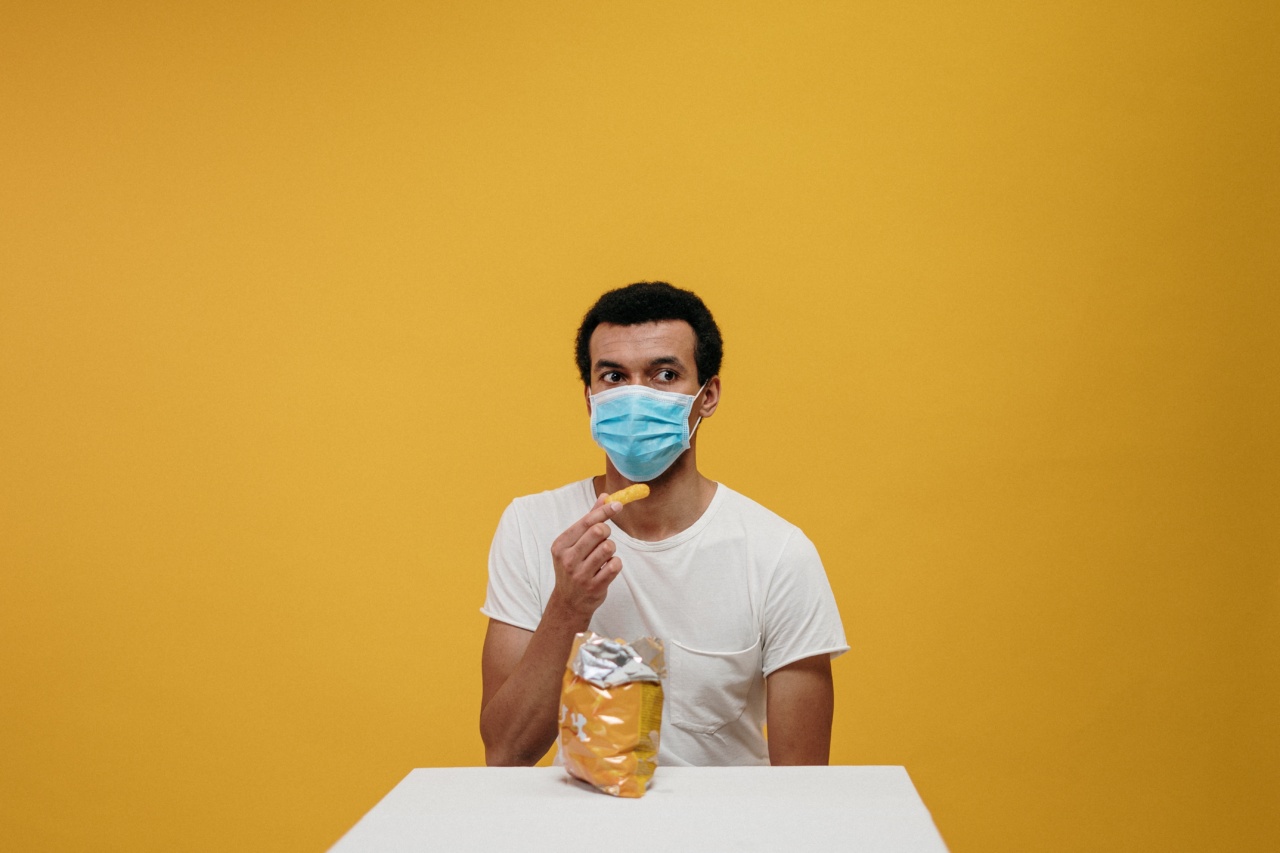Getting a good night’s sleep is important for overall health and well-being, but it can be particularly challenging for women during their period. Hormonal changes and physical discomfort can make it difficult to fall asleep and stay asleep.
However, by making some smart food choices and avoiding certain foods, you can improve your sleep quality during this time of the month. In this article, we will explore the foods you should eat and avoid for better sleep on your period.
1. Foods to Eat
Eating the right foods can positively impact your sleep quality during your period. Here are some foods you should include in your diet:.
1.1 Whole Grains
Whole grains such as oats, quinoa, and brown rice are rich in magnesium, which can help relax your muscles and promote better sleep.
They also have a low glycemic index, which means they release energy slowly, helping to stabilize blood sugar levels and prevent sleep disturbances.
1.2 Fatty Fish
Fatty fish like salmon, tuna, and sardines are excellent sources of omega-3 fatty acids. These healthy fats can help reduce inflammation in the body and promote better sleep.
They also contain vitamin B6, which is essential for the production of melatonin, the hormone that regulates sleep.
1.3 Leafy Greens
Leafy greens such as spinach, kale, and Swiss chard are packed with magnesium, calcium, and vitamin B6, all of which can contribute to better sleep.
Magnesium helps relax muscles, calcium plays a role in melatonin production, and vitamin B6 aids in the synthesis of sleep-inducing neurotransmitters like serotonin and melatonin.
1.4 Bananas
Bananas are a great source of potassium, magnesium, and vitamin B6, all of which make them an ideal fruit for promoting better sleep. The magnesium and potassium help relax muscles, while vitamin B6 aids in the production of melatonin.
1.5 Herbal Tea
Sipping on a cup of herbal tea before bed can help you relax and prepare for sleep. Chamomile tea, in particular, is known for its calming properties and can help ease menstrual pain.
Other herbal teas like lavender and valerian root can also promote better sleep.
2. Foods to Avoid
In addition to consuming sleep-promoting foods, it’s important to avoid certain foods that can disrupt your sleep during your period. Here are some foods you should steer clear of:.
2.1 Caffeine
Caffeine can interfere with your sleep by stimulating your nervous system and keeping you awake.
Avoid consuming caffeinated beverages like coffee, tea, and soda in the evening, as they can stay in your system for several hours and disrupt your sleep patterns.
2.2 Spicy Foods
Spicy foods can cause heartburn and digestive discomfort, making it harder to fall asleep. To prevent acid reflux, avoid consuming spicy foods close to bedtime.
2.3 Sugary Treats
Highly processed sugary treats like cookies, cakes, and candies can cause blood sugar spikes and crashes, leading to restless sleep. Opt for healthier snacks that are low in sugar and provide sustained energy, such as fruits or nuts.
2.4 Alcohol
Although alcohol may initially make you feel drowsy, it can disrupt your sleep cycle and lead to poor sleep quality. It can also worsen symptoms of premenstrual syndrome (PMS) and menstrual cramps.
3. Establishing Healthy Sleep Habits
In addition to eating the right foods, adopting healthy sleep habits can further improve your sleep during your period. Here are some tips:.
3.1 Stick to a Schedule
Try to go to bed and wake up at the same time every day, even on weekends. This helps regulate your body’s internal clock and enhances sleep quality.
3.2 Create a Relaxing Bedtime Routine
Develop a calming routine before bed to signal to your body that it’s time to sleep. This can include activities such as taking a warm bath, reading a book, or practicing relaxation techniques like deep breathing or meditation.
3.3 Keep Your Bedroom Cool and Dark
Create an optimal sleep environment by keeping your bedroom cool, dark, and quiet. Use blackout curtains, earplugs, or a sleep mask if necessary to block out any disruptive light or noise.
3.4 Limit Screen Time
Avoid using electronic devices such as smartphones, tablets, or laptops right before bed. The blue light emitted by these devices can interfere with the production of melatonin, making it harder to fall asleep.
3.5 Exercise Regularly
Engaging in regular physical activity can promote better sleep quality. However, avoid intense exercise close to bedtime, as it may stimulate your body and make it harder to relax.
Conclusion
While sleep disturbances can be common during your period, making dietary adjustments and adopting healthy sleep habits can greatly improve your sleep quality.
Incorporate foods such as whole grains, fatty fish, leafy greens, and bananas into your diet for better sleep. Avoid or limit caffeine, spicy foods, sugary treats, and alcohol, as they can disrupt your sleep patterns.
Additionally, establish a regular sleep schedule, create a relaxing bedtime routine, and create an optimal sleep environment to support a restful night’s sleep. By prioritizing your sleep during your period, you can wake up feeling refreshed and revitalized.































